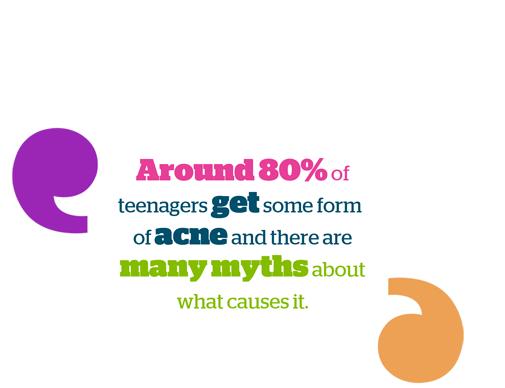Coughs & colds
There are some good things about catching a few coughs and colds - it helps build-up your natural defences and fight off viruses.
Most bugs will run their course without doing any real harm because they are viruses which get better on their own. However, there are things you can do at home to help:
Gastroenteritis, otherwise known as a stomach bug or food poisoning, is something you are likely to get at some point. Most cases resolve themselves within a few days, without the need for medical treatment.
"Ensure you drink plenty of water so that you don’t become dehydrated."
Be extra careful with hand hygiene (use soap and water and dry hands well with a clean towel).
If the gastroenteritis lasts for more than three or four days, get advice from a health professional, such as your GP or pharmacist.
Headaches
Headaches are quite common and most headaches are not due to a serious health problem. They can be brought on by skipping meals, not getting enough sleep, using computers, video games or other machines for a long time without breaks and occasionally from playing sport which can make you dehydrated. Sometimes headaches can be the result of stress, brought on by things such as bullying or your parents splitting up. They can be avoided by making sure you get enough food, drink and sleep.
"Most headaches can be treated at home with paracetamol or ibuprofen."
Always check the label for the correct dosage.
Migraines
Migraines are the most common cause of frequent headaches in young people. They often come on suddenly and as well as a headache, you may feel sick, have tummy ache, or have changes to your vision. You may want to avoid bright lights and loud noises as the pain often gets better after a sleep. Migraines are not usually serious, but can interfere with life, so talk to your GP if you are having frequent headaches or if they are associated with other symptoms such as dizziness, vomiting and fever.
Around 80% of teenagers get some form of acne and there are many myths about what causes it. Acne consists of spots and painful bumps on the skin. It’s most noticeable on the face, but can also appear on the back, shoulders and buttocks. Severe acne can cause scarring, so it is important to get treated.
"Acne is mostly due to the way skin reacts to hormonal changes."
Cases of teenage acne are thought to be triggered by increased levels of a hormone called testosterone that occurs during puberty. Treatments are available from your pharmacy but if there is no improvement, you should visit your GP who can assess how bad your acne is and discuss the options with you. If acne is severe, your GP can refer you to a dermatologist (an expert in treating skin conditions). Treatments can take between two to three months to work but, once they do, the results are usually effective.
Glandular fever is a type of viral
infection that mostly affects young
adults. Common symptoms include:
- A high temperature (fever).
- A severely sore throat.
- Swollen glands in the neck.
- Fatigue (extreme tiredness).
While the symptoms of glandular
fever can be very unpleasant, most
of them should pass within two to
three weeks. Feeling very tired can
occasionally last several months.
When to seek medical advice
You should contact your GP or tell
someone if you suspect that you have
glandular fever. Your GP can provide
advice and support to help you
control your symptoms and reduce
the risk of passing on the infection.
You should go to your local accident
and emergency (A&E) department
or dial 999 for an ambulance if you
have glandular fever and you:
- Develop a rasping breath or have
any breathing difficulties.
- Find swallowing fluids difficult.
- Develop intense abdominal pain.
These symptoms can be a sign of a
complication of glandular fever that
may need to be treated in hospital.
What causes glandular fever?
Glandular fever is caused by a virus
found in the saliva of infected
people and can be spread through:
- Kissing – glandular fever is often
referred to as the ‘kissing disease’.
- Exposure to coughs and sneezes.
- Sharing eating and drinking
utensils, such as cups, cans, glasses
and unwashed cutlery.
The virus may be found in the saliva
for several months after the
symptoms pass, and some people
may continue to have the virus in
their saliva on and off for years.
If you have had glandular fever, take
steps to avoid infecting others while
you are ill, such as not kissing. There's
no need to avoid all contact with
others as the chances of passing on
the infection are generally low.






